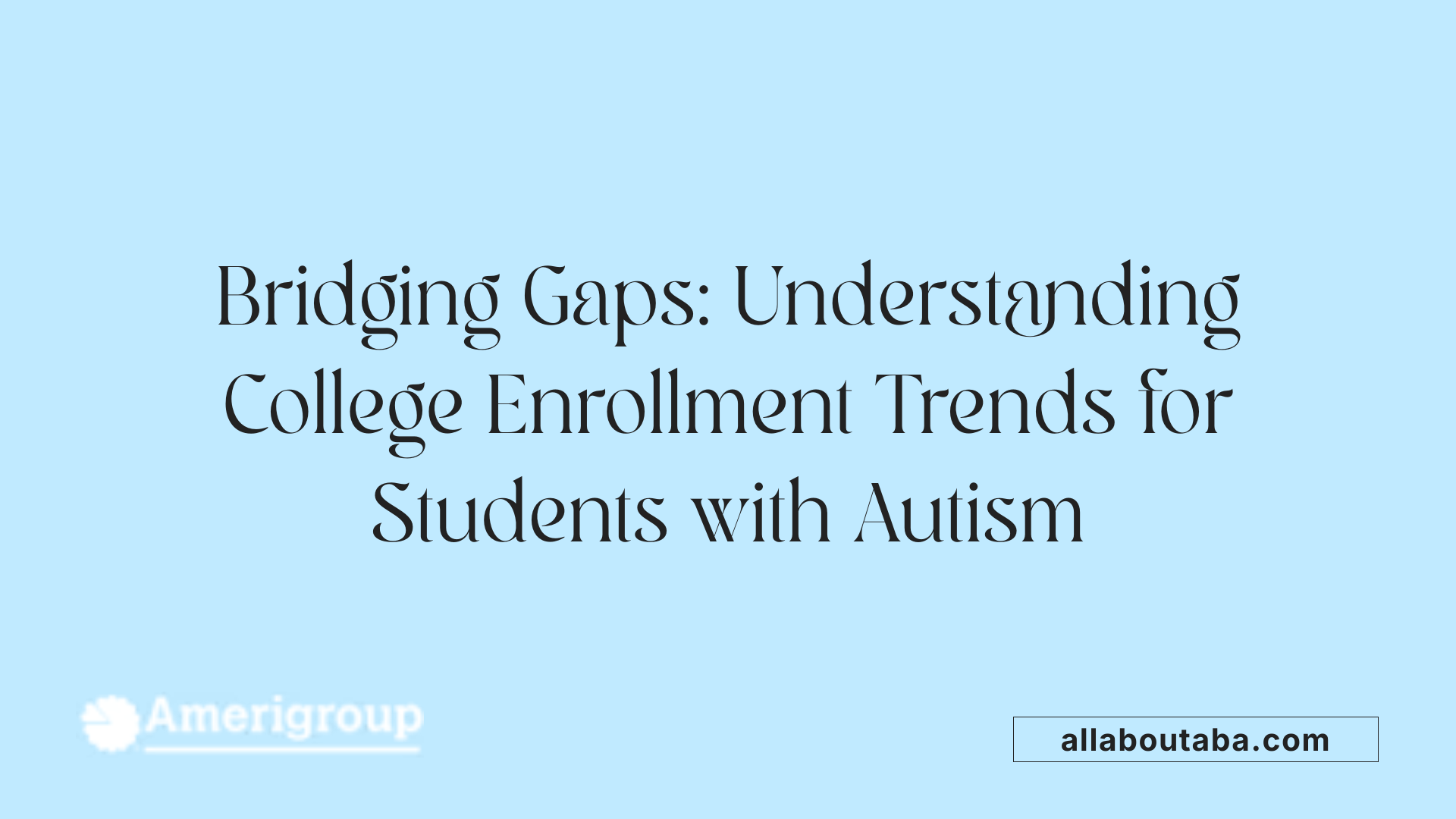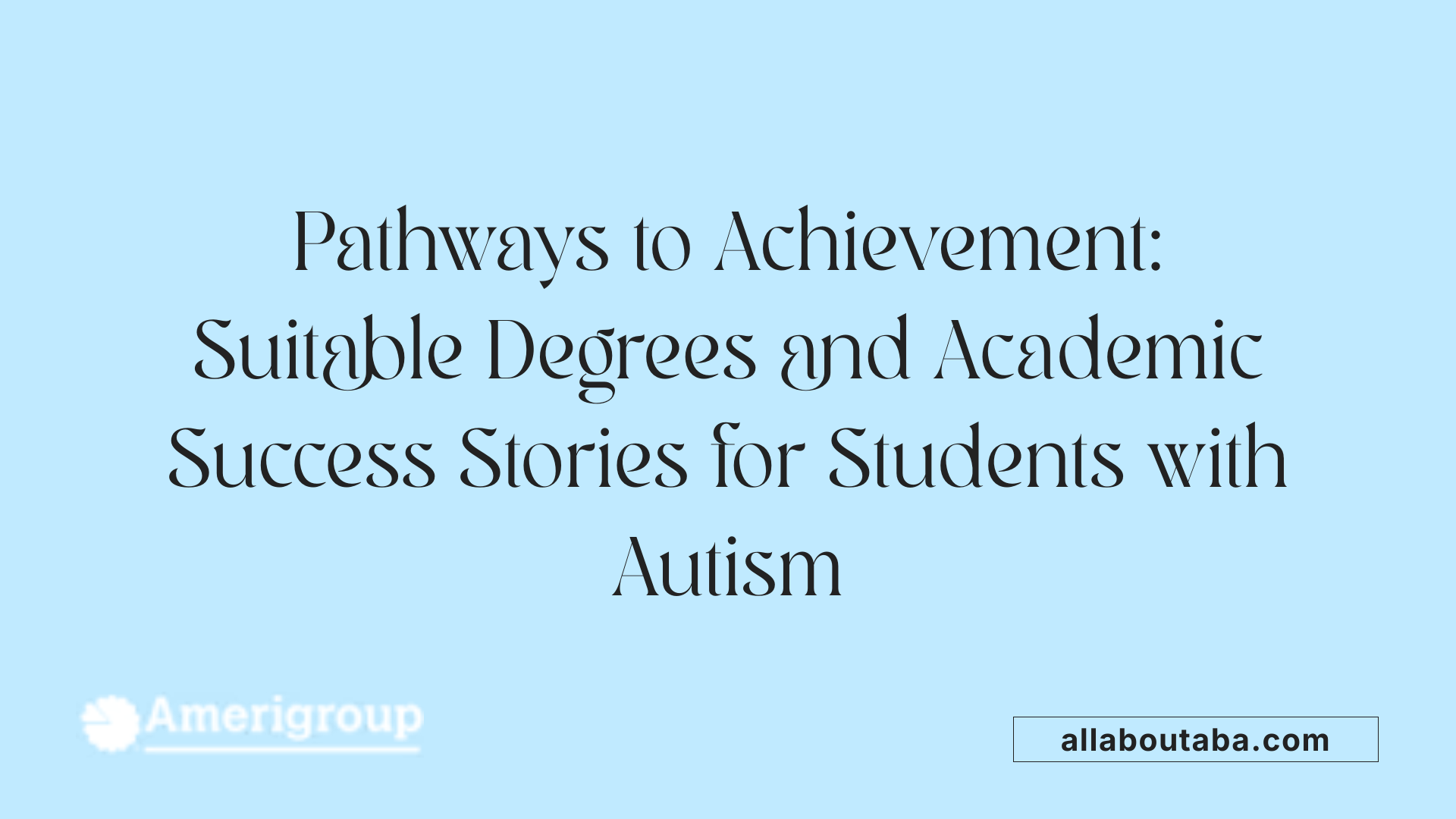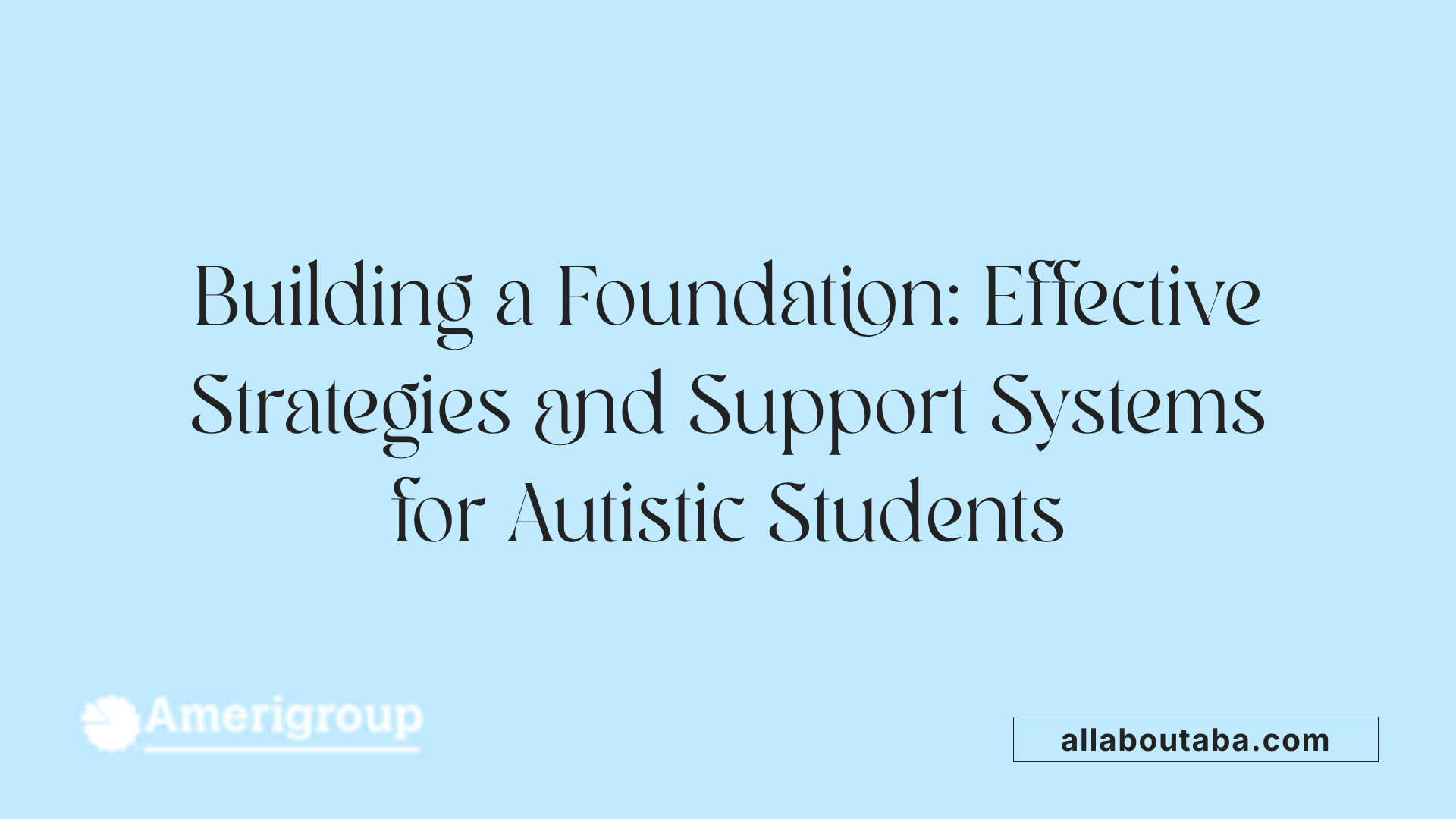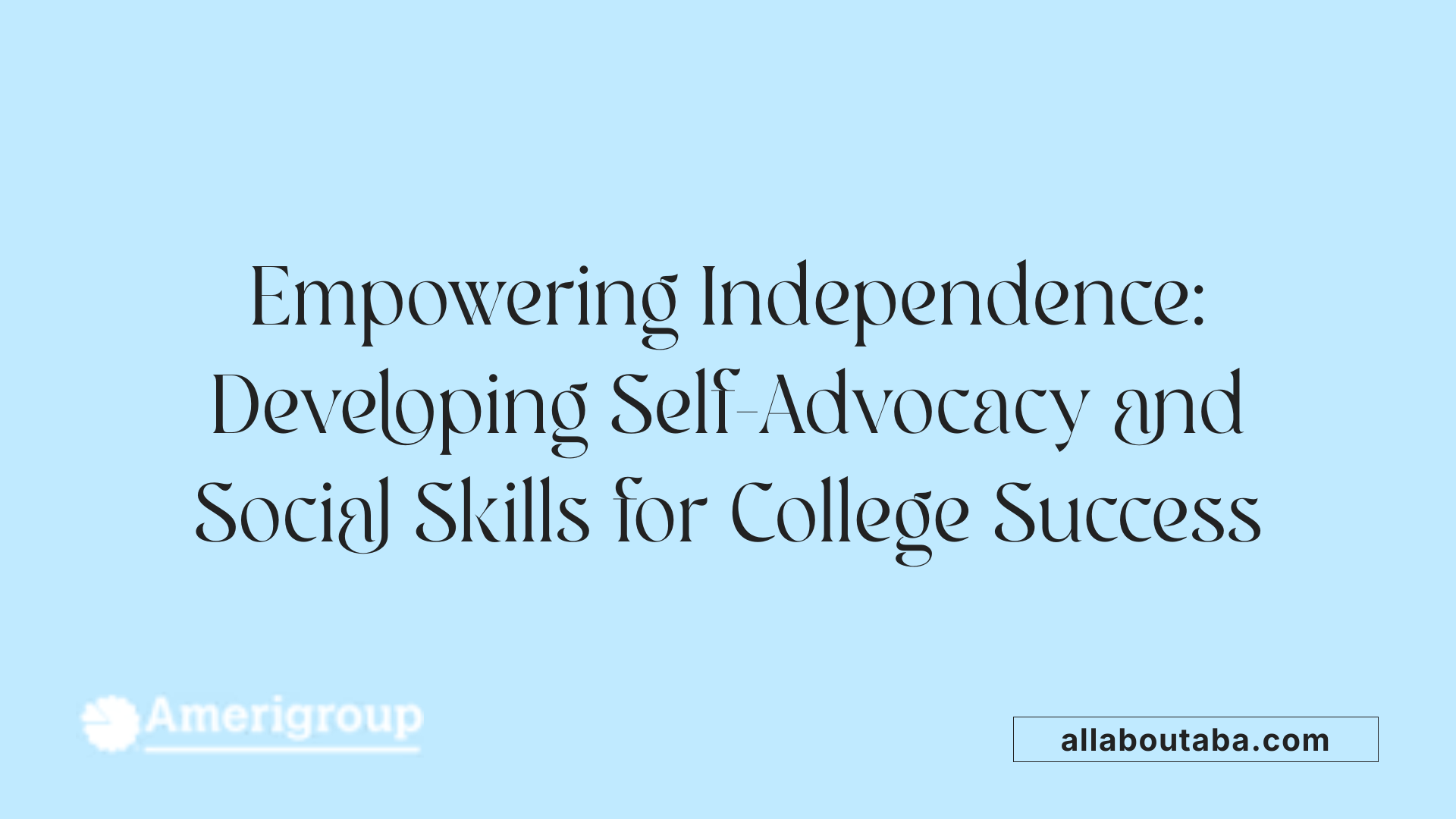Empowering Autistic Students in College
Transitioning from high school to college is a significant milestone for any student, but for those with autism, it presents unique challenges and opportunities. Understanding the support systems, accommodations, and strategies available can make this journey successful. This article explores the crucial aspects of going to college with autism, emphasizing preparation, resources, personal stories, and practical tips to facilitate a positive college experience.
Understanding the Challenges Faced by Students with Autism in College
What are some common challenges faced by students with autism in college?
Students with autism often encounter a variety of hurdles when transitioning to and navigating college life. One of the primary difficulties involves social interaction. Many students on the autism spectrum struggle with establishing and maintaining friendships, navigating social cues, and participating in campus activities, which can lead to feelings of isolation.
Communication challenges are also prevalent. These may include difficulties in expressive and receptive language, making classroom discussions, group work, and interactions with professors more stressful. Managing repetitive behaviors, such as rituals or routines, can be overwhelming amidst the busy college environment.
Academic demands and organizational skills are additional obstacles. Independent learning requires effective time management, note-taking, and test-taking strategies—all of which can be challenging without proper support. The absence of specialized programs tailored for students with autism in many colleges further complicates matters.
Transition planning plays a vital role in preparing students. Early development of executive functioning skills like planning, organization, and self-advocacy enables students to better handle the demands of higher education.
Access to appropriate support services—such as disability accommodations, sensory-friendly spaces, and social skills training—is crucial. When these are in place, students with autism can better manage their unique needs, foster independence, and succeed socially and academically.
How can colleges better support students with autism?
Implementing tailored programs, offering clear communication, and providing flexible accommodations help create a more inclusive environment. Collaboration between students, families, and campus support offices is essential in facilitating smooth transitions and ongoing success in college settings. Recognizing autism as a neurological variation rather than a deficit can promote understanding and foster accommodations that align with each student's strengths.
Available Accommodations and Resources for Autistic College Students
What accommodations and resources are available for autistic college students?
Autistic students in college can access numerous supports designed to help them succeed academically and socially. Common accommodations include extended time on tests and assignments, quiet or distraction-free testing environments, and note-taking assistance. These are coordinated through the college’s disability services office.
In addition to accommodations, many colleges offer specific programs tailored for students with autism. These programs often provide social skills training, mentorship, counseling, and vocational support. Technological tools such as visual schedules, timers, and assistive communication devices can help students stay organized and manage their daily routines.
Financial aid options, including scholarships designated for students with autism, can alleviate economic barriers. Some institutions also provide sensory-friendly spaces and modified living arrangements, like single dorm rooms with adjusted lighting, to help students cope with sensory overload.
Online colleges and vocational schools present flexible alternatives suited to individual needs, particularly for those who find traditional campus environments overwhelming. Support from disability services, academic advising, and tutoring are vital components in creating accessible learning experiences.
Students should proactively research each institution’s specific resources, ask questions about available supports, and develop a robust transition plan early. This preparation ensures a better fit and sets the foundation for academic and personal success in college.
Participation and Enrollment Trends for Students with Autism

What percentage of students with autism attend college?
Research indicates that students with autism spectrum disorder (ASD) have significantly lower college attendance rates compared to their neurotypical peers. Studies show that approximately 40% or fewer youth with ASD pursue postsecondary education, which highlights the considerable barriers they often face in transitioning to college life.
Despite ongoing efforts to improve access, many autistic students do not enroll in college. The reasons for this include challenges with social interactions, managing executive functioning tasks like organization and time management, and navigating the support systems available. Many students lack awareness of the supports they need or the accommodations they can request, which can hinder their college experience.
Factors such as sensory sensitivities, emotional regulation difficulties, and a lack of structured transition planning in high school also contribute to lower enrollment rates. Furthermore, support services at colleges may be insufficient or poorly understood by staff, making it harder for students to receive the assistance they need.
Overall, while some students with autism successfully attend and graduate from college, the majority do not participate in higher education, underscoring the importance of early, targeted interventions and better support systems to facilitate greater access and retention for students on the spectrum.
Degree Paths and Academic Success for Students with Autism

Are there specific degree paths that are suitable for students with autism?
Choosing the right college major is an important step for students on the autism spectrum. Fields like psychology are often appealing because they focus on understanding learning, thinking, and behavior—areas that align with many students' interests and strengths. Sociology is another suitable option, especially for those interested in helping autistics with their daily lives and fostering social change. These disciplines can also provide rewarding careers in research, counseling, and social work.
Do students with autism typically do well in college?
Many students with autism spectrum disorder (ASD) succeed academically in college, particularly those who can leverage their interests and strengths. For example, high-functioning individuals such as Temple Grandin and Dawn Prince-Hughes have earned advanced degrees and become influential in their fields. Such success stories demonstrate that with appropriate support, accommodations, and technology, students with autism can thrive academically.
College environments that understand autism—offering classroom accommodations, assistive tools like visual schedules, and sensory-friendly spaces—can significantly boost their chances of success. Initial challenges such as overwhelm or social difficulties may arise, but they often diminish with support.
Overall, students with autism have a strong potential for academic achievement and personal growth when they access the right resources and cultivate supportive networks.
Research and Support Programs in Higher Education for Autism
There are a variety of initiatives and research efforts aimed at supporting students with autism in higher education. Colleges and universities increasingly recognize the importance of inclusive practices and provide accommodations such as extended testing time, distraction-free testing rooms, note-taking assistance, and sensory-friendly living options to help students succeed.
Many institutions participate in federally funded transition programs, like the Community Technology Program (CTP), which focus on developing academic, vocational, and independent living skills for students with intellectual disabilities, including those on the autism spectrum.
Research efforts also explore best practices for supporting neurodivergent students. The College Autism Network (CAN) is a prominent organization that links stakeholders and promotes evidence-based strategies to improve access, experiences, and outcomes. It offers resources such as the autism in higher education research database and hosts annual summits that bring together researchers, educators, and students to share insights.
Specialized programs like autism support centers inside colleges are designed to provide additional assistance, including social skills groups, mentoring, vocational training, and mental health counseling. These services often extend beyond mere accommodations to foster full participation and success.
Funding opportunities, such as Scholarships and the Disabled Students’ Allowance (DSA), help cover costs related to additional support services or adaptive equipment. Internships and cooperative education programs are also tailored to help students develop essential social and workplace skills.
Training for faculty and staff is another crucial part. Many institutions are implementing online courses and workshops, like NeuroPrep, to increase awareness and understanding of autism among college faculty. This training helps create a more accepting environment and ensures that students receive the support they need.
In summary, a combination of federal programs, dedicated research, specialized services, and targeted training are shaping a more accommodating and effective higher education landscape for students with autism.
Strategies and Support Systems for Success in College

What strategies and support systems can help autistic students succeed in college?
Helping autistic students thrive in higher education involves proactive planning, resource utilization, and skill development. Starting early, around age 16, is vital for creating a personalized transition plan that prepares students for the demands of college life.
It's beneficial to involve high school IEP teams, parents, and vocational counselors in the planning process to ensure a smooth transition. These collaborations help identify strengths, interests, and support needs, laying a foundation for future success.
Upon entering college, students should leverage available campus services. These include disability accommodations such as extended test time, quiet testing rooms, note-takers, and sensory-friendly living spaces. Counseling services and advocacy groups like the College Autism Network can also provide emotional support and guidance.
Building essential executive functioning skills—like time management, organization, and self-regulation—is crucial. Using organizational tools such as visual schedules, planners, timers, and alarms can help manage coursework and daily routines.
Choosing the right college plays a role in success. Prospective students should evaluate the availability of support services, whether the campus provides a welcoming environment for neurodivergent students, and suitable living arrangements, such as single dorm rooms or sensory-friendly accommodations.
Developing self-advocacy skills builds confidence and independence. Learning to communicate needs effectively, ask questions, and understand one's rights under laws like the Americans with Disabilities Act empowers students to access the supports they require.
Financial support options, like scholarships and grants aimed at students with autism and disabilities, can ease economic challenges. These resources contribute positively to academic experiences and reduce stress.
By integrating early planning, resourcefulness, skill-building, and effective advocacy, autistic students can better navigate college environments, develop independence, and reach their educational goals.
Promoting Self-Advocacy and Social Skills Development in College

How can students with autism effectively advocate for themselves and develop social skills in college?
Students with autism can succeed on college campuses by actively learning to express their needs and rights. Familiarity with laws such as the Americans with Disabilities Act (ADA) enables them to request necessary accommodations, like extended test time, quiet spaces, or sensory-friendly housing arrangements. Developing confidence in self-advocacy involves practicing communication and decision-making skills, often through participating in peer support groups or specialized programs that promote social interaction.
Early planning is crucial. Transition planning before high school graduation should include developing independence, understanding personal strengths and challenges, and acquiring essential skills like organization and emotional regulation. Engaging family, educators, and counselors helps students set realistic goals and prepare for the college environment.
Utilizing resources from organizations such as the College Autism Network and the Autism Society can provide valuable guidance. These organizations offer mentorships, workshops, and informational materials tailored to higher education needs. Attending their events or accessing online resources can help students learn effective self-advocacy strategies and connect with others who share similar experiences.
Participating in community and campus activities, joining clubs, or social skills groups fosters peer connections and enhances social competence. Practicing communication strategies—such as active listening, asking questions, or using visual aids—can make social interactions less stressful.
Ultimately, proactive support-seeking, consistent self-advocacy, and engagement with available resources are vital for students with autism to thrive academically, socially, and independently in college settings.
Making Informed College Choices and Supporting Independence
How can students with autism research colleges with autism support programs?
Students with autism should start by exploring colleges recognized for their supportive environments and resources tailored to neurodivergent learners. Many institutions offer specific programs such as autism support services, social skills groups, and academic accommodations. Utilizing online resources, such as the College Autism Network, can provide extensive information on the availability of these services. Visiting college websites to review their disability or accessibility pages, attending virtual tours, and reaching out to support offices can help students gain a clear understanding of available supports. Connecting with current students or alumni through online forums or social media can further inform decision-making.
What considerations about living arrangements and sensory needs should be taken into account?
Living on campus can present sensory challenges for students on the autism spectrum. Many colleges offer sensory-friendly dorm options, single rooms, or modified lighting to create a comfortable environment. When choosing a college, students should consider proximity to home if they prefer to live nearby, as well as options for off-campus housing. Sensory needs such as noise levels, lighting, and shared space can influence the living situation. Visiting campuses in advance to assess these factors or discussing needs with admissions and support staff is vital for making a suitable choice.
How can online resources and virtual campus tours assist in decision-making?
Online resources provide valuable insights into college environments without the need for physical visits. Virtual tours can showcase sensory-friendly spaces, quiet zones, and accessible facilities, helping students and families evaluate the campus ambiance. Many colleges offer virtual meetings with disability support staff, allowing prospective students to ask questions about accommodations, social supports, and academic services. These tools enable students to gather comprehensive information, especially when travel is challenging or during early planning stages.
Why is early planning, ideally at age 16 or younger, important?
Beginning transition planning early allows students with autism to systematically develop necessary skills, identify preferred college environments, and understand available supports. Early planning around age 16 involves assessing strengths, interests, and potential challenges, while exploring postsecondary options. Engaging school counselors, family, and professionals ensures a coordinated approach. Starting early also provides ample time to build self-advocacy, independent living, and social skills, which are crucial for success in college.
How can families and professionals be involved in decision-making?
Families serve as advocates and support strategists, helping students explore options and prepare for independence. Professionals, such as high school special educators, therapists, or transition coordinators, can assist with assessments, skills development, and navigating college support systems. Collaborative planning meetings can clarify goals and outline steps for a successful transition. Encouraging students to participate actively in decision-making fosters independence and confidence. Together, families, professionals, and students create a tailored plan aligned with individual needs and aspirations.
Can students with autism access free college programs?
Students with autism can access free college programs and support services, but their success depends on choosing institutions that provide appropriate accommodations and supportive environments. Community colleges, online colleges, and specialized programs often offer tailored resources such as trained staff, social organizations, and assistive technologies to assist neurodivergent students. Transition planning starting at age 16 helps set clear goals and identify supports needed for academic and social success. Various resources, scholarships, and internship opportunities are available through advocacy groups and networks. With proper preparation, support, and accessible resources, students with autism have the opportunity to pursue higher education successfully.
Empowering Autistic Students in Higher Education
Navigating college with autism involves understanding individual needs, leveraging support systems, and advocating for oneself. Early preparation, comprehensive support programs, and inclusive campus environments can foster independence and success. Students, families, educators, and college staff all play a vital role in creating accessible, supportive educational journeys where students on the spectrum can thrive academically, socially, and emotionally. Embracing neurodiversity and promoting awareness across higher education institutions will ensure that more students with autism realize their full potential and achieve fulfilling careers and personal growth.
References
- Going to College With Autism - Child Mind Institute
- Autism & College - Autism Research Institute
- Autism and the College Experience - SPARK for Autism
- Autism Goes To College | Hey University, here we come!
- College Programs For Students With Autism Spectrum Disorder
- College Autism Network
- THE PODCAST SERIES | Autism Goes To College







